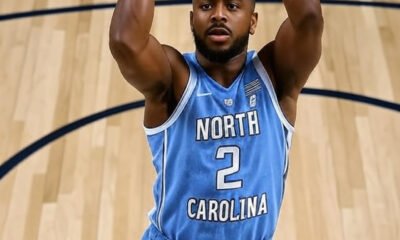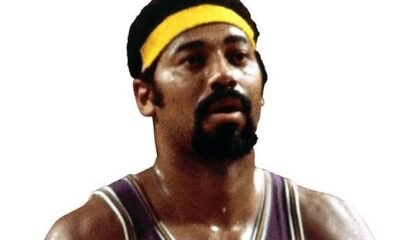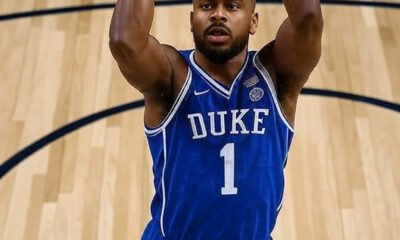Blog
“Michigan State Men’s Basketball Shocks the College World: Transfers Miami Guard Divine in $1 Million Deal
Michigan State Men’s Basketball Shocks the College World: Transfers Miami Guard Divine in $1 Million Deal
In a stunning development that has sent ripples across the college basketball landscape, Michigan State University’s men’s basketball program has secured a groundbreaking transfer deal, reportedly worth over $1 million, to bring Miami (FL) guard Divine into the Spartans’ fold. This unprecedented move signifies a new era of transfer market dynamics, NIL (Name, Image, Likeness) monetization, and the evolving landscape of college athletics.
### The Transfer That Shook the College Basketball World
Divine, a talented guard from the University of Miami, has been a prominent figure in the Hurricanes’ backcourt since his arrival. Known for his scoring ability, athleticism, and versatility, the 6-foot-4 guard has averaged 14 points per game over his two seasons, showcasing his potential as a star at the collegiate level. His decision to transfer to Michigan State—traditionally a powerhouse program—has stunned fans, analysts, and university officials alike.
Sources close to the situation confirm that the deal surpasses $1 million in total compensation, making it one of the most lucrative transfer agreements in college sports history. This deal, reportedly brokered by prominent NIL agencies and player representatives, underscores the financial evolution of college basketball and the increasing influence of the NIL era.
### The Context of NIL and the Modern Transfer Market
The NCAA’s legalization of NIL compensation in 2021 has transformed college athletics, providing student-athletes with new opportunities to monetize their fame and talents. While traditional scholarships covered tuition, room, board, and some stipends, the NIL era has opened avenues for athletes to earn significant income through endorsements, social media, and private deals.
Divine’s transfer deal exemplifies this shift. The $1 million figure is a testament to how universities and brands are willing to invest heavily in high-profile athletes to boost their programs’ competitiveness and marketability. Michigan State’s investment indicates their aggressive strategy to re-establish dominance in the Big Ten Conference and nationally.
### Michigan State’s Strategic Move
Michigan State, under head coach Tom Izzo, has long been renowned for its disciplined approach, strong defense, and deep tournament runs. However, in recent seasons, the Spartans have faced stiff competition within the Big Ten and nationally, prompting them to seek innovative ways to elevate their roster.
Bringing in Divine is part of a broader strategic push by Michigan State’s athletic department to leverage NIL deals to attract top-tier talent. The university’s administration has reportedly committed significant resources to NIL partnerships, ensuring their athletes can compete at the highest levels financially while maintaining the academic and athletic integrity expected from a leading institution.
The decision to invest heavily in Divine signals Michigan State’s commitment to recruiting elite talent outside traditional recruiting pipelines. It also opens discussions about the future of college sports, where financial incentives can sometimes rival or even surpass those offered by professional leagues.
### Divine’s Impact and Expectations
Divine’s arrival at Michigan State is expected to have immediate and long-term impacts on the program. As a dynamic scoring guard with the ability to create his own shot and distribute effectively, he fills a critical need for the Spartans’ backcourt. His experience at Miami, competing in the Atlantic Coast Conference, has prepared him for the rigors of Big Ten competition.
Fans and analysts alike anticipate that Divine could elevate Michigan State’s on-court performance, making them a formidable contender in the upcoming NCAA tournament. His leadership qualities, combined with his elite athleticism, could also serve as a catalyst for the development of younger players on the roster.
Off the court, Divine’s transfer underscores the increasing importance of NIL branding. His social media following, endorsements, and personal brand are expected to grow significantly as he shifts to a program with a storied basketball history and national prominence.
### Broader Implications for College Basketball
This high-profile transfer and NIL deal mark a turning point, highlighting several key implications for college basketball:
1. **Financial Arms Race**: Schools are investing heavily in athletes, leading to an arms race that could widen disparities between prominent programs and mid-major schools.
2. **Recruitment and Transfer Strategies**: The transfer portal has become a primary tool for programs seeking immediate impact players, often accompanied by lucrative NIL deals.
3. **Player Power and Autonomy**: Athletes now have unprecedented leverage to negotiate their worth, influencing their decision-making and career trajectories.
4. **Legal and Ethical Considerations**: The burgeoning NIL market raises questions about fairness, compliance, and the potential for exploitation, prompting ongoing discussions among regulators, universities, and athletes.
### Reactions from Key Stakeholders
**Michigan State Fans and Alumni:** The news has been met with excitement and optimism. Many see Divine’s transfer as a statement of intent from the Spartans, signaling their ambitions for sustained success in the NCAA landscape.
**Miami Hurricanes:** While disappointed to lose one of their key players, Miami officials acknowledge Divine’s aspirations and the opportunities NIL provides. The Hurricanes remain competitive, with a talented roster that will look to adapt without him.
**NCAA and Regulatory Bodies:** The deal raises eyebrows regarding compliance and transparency. Critics argue that such large NIL deals could undermine the amateur status of college athletes, while supporters believe they are a fair reflection of athletes’ market value.
**Other Universities:** Schools across the country are taking note of Michigan State’s aggressive NIL strategy. Some are exploring similar deals, while others are concerned about maintaining competitive balance.
### Future Outlook
The Divine transfer deal is likely to set a precedent for future high-profile transfers and NIL agreements. As more athletes recognize their market value, college sports could see an influx of significant financial negotiations, potentially transforming the competitive landscape.
For Michigan State, the investment appears to be a calculated gamble aimed at restoring national prominence and competing at the highest levels. If Divine performs as expected, the Spartans could become a formidable contender in the upcoming seasons.
Meanwhile, the NCAA and policymakers will continue to grapple with regulating NIL practices to ensure fairness, transparency, and the preservation of college athletics’ integrity.
### Conclusion
The transfer of Miami guard Divine to Michigan State in a $1 million deal is more than just a player movement; it symbolizes the seismic shifts occurring in college sports. Driven by NIL opportunities and a competitive transfer market, universities are increasingly willing to invest heavily in athletes to secure athletic and financial success.
As college basketball navigates this new era, stakeholders must balance innovation with fairness, ensuring that the spirit of amateurism and education remains intact. Divine’s move is a bold statement of the changing times—a glimpse into a future where college athletes are not just students and competitors but also significant players in a lucrative sports economy.
-

 Arsenal2 years ago
Arsenal2 years agoSad News Arsenal ex player who is goal scorer confirmed dead this morning
-
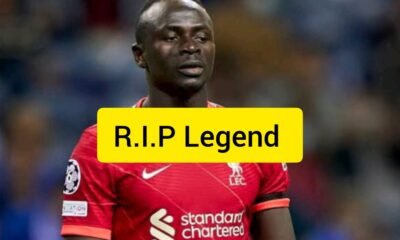
 Liverpool2 years ago
Liverpool2 years agoSad News Sadio Manè Confirmed Dead Today By Sky Sports Reporters, Open For Full Story 👇
-
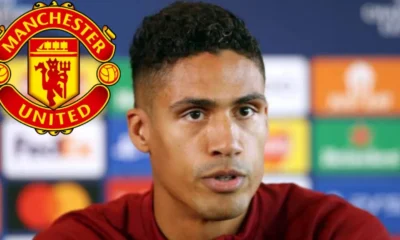
 Blog2 years ago
Blog2 years ago“I was forcefully removed from Manchester United squad and now I’ve joined the best team in the world…I will revenge and as a result, I’ve ordered my friend who’s their best player currently to leave there with immediate effect and he has agreed”: Former Man United player angered by United decision to removed him from the squad as he ordered the Club’s best player to leave immediately.
-

 Blog1 year ago
Blog1 year agoSad News: Manchester United player died when playing for his country England yesterday 😢 😔
-

 Blog2 years ago
Blog2 years agoR.I.P: Formal Real Madrid and France international confirm death this morning
-

 Chelsea2 years ago
Chelsea2 years agoBreaking New:”Roman Abramovich could get Chelsea back”? Chelsea owner review the conversation between him and Roman Abramovich in. Deal about getting Chelsea back
-

 Blog2 years ago
Blog2 years agoUNBELIEVABLE: Manchester City midfielder KELVIN DE BRUYNE divorced wife this morning after DNA test revealed their 5 years old son belongs to formal Manchester United player
-
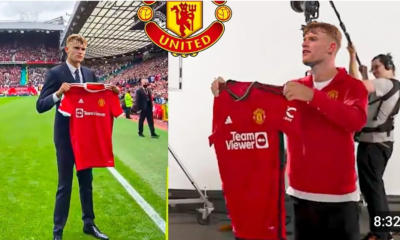
 Manchester United2 years ago
Manchester United2 years agoOFFICIAL NOW: Manchester United announce the signing of 23yr sensational player after beating Liverpool and Madrid for His signature, agreement reached on a 5yr deal, Medical completed – announcement ongoing



